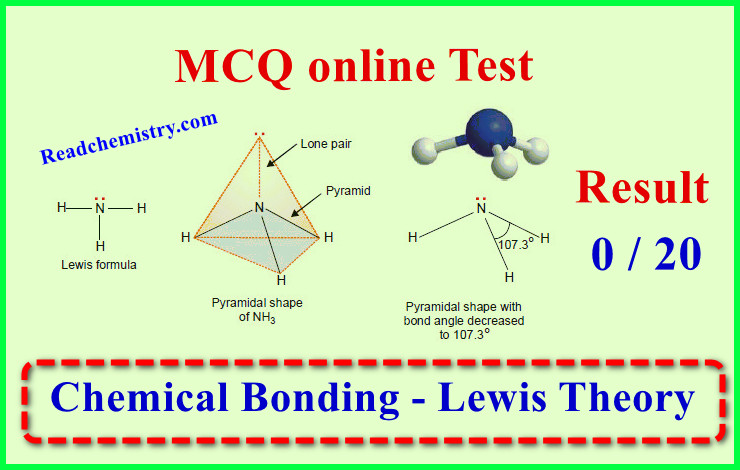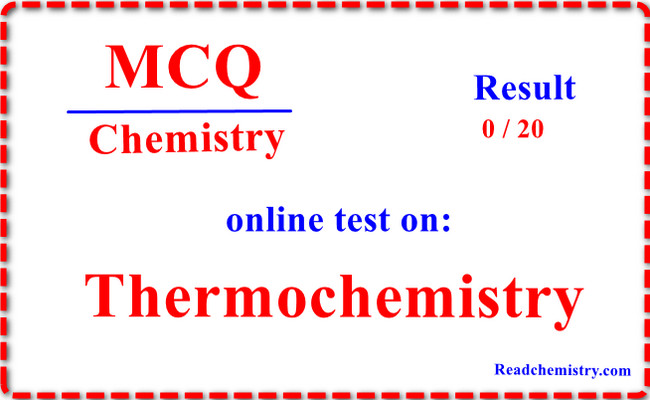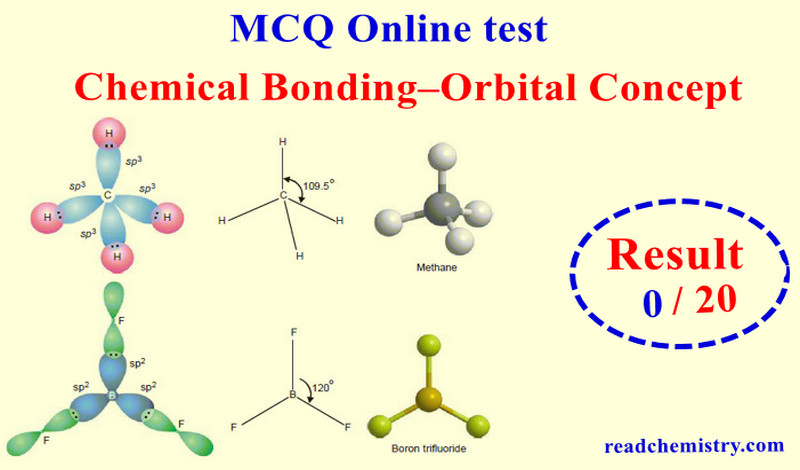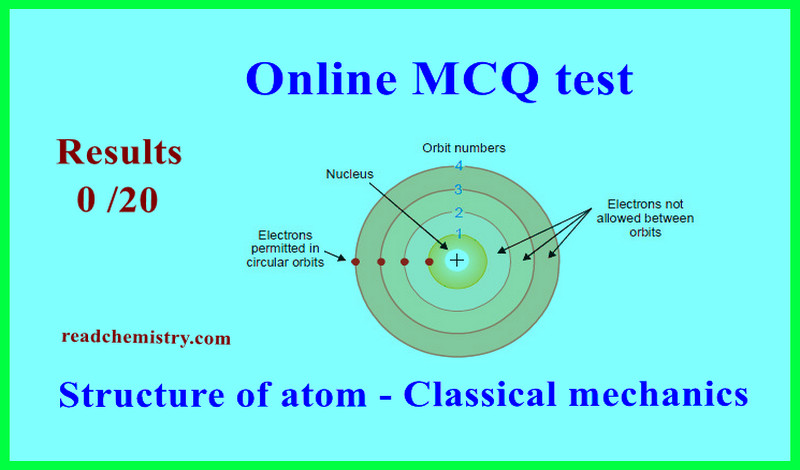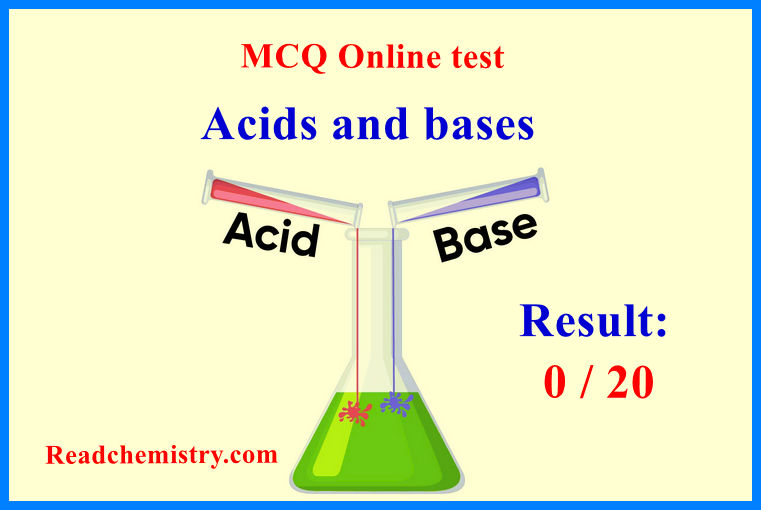Chemical Bonding – Lewis Theory – Online MCQ test
Online MCQ test on Chemical Bonding – Lewis Theory
– In this topic we offer you, online MCQ test in the fundmental of Chemical Bonding – Lewis Theory .
– It is a simple test to measure the strength of your knowledge in the basics of understanding the topics of Chemical Bonding – Lewis Theory.
– The test consists of only (20) questions (multiple choice) you must answer all of them so that your final score appears automatically at the top of the topic.
– you will pass the Exam If get 70% or more.
– If you fail the test, you can retake the test again by reloading the page
– Let’s start the test, good luck.
Starting the test of Chemical Bonding – Lewis Theory
Results
Congratulation
Try again
#1. A co-ordinate bond is formed by _____
#2. In which of the following, the central atom is surrounded by four electron pairs
#3. The types of bonds present in sulphuric acid molecules are ___
#4. According to VSEPR theory, __________
#5. Methanol is soluble in water due to ____
#6. The lattice energy is the amount of energy that _____
#7. The covalent compounds are soluble in _____
#8. A covalent bond involves ___
#9. CO2 is isostructural with ____
#10. An ionic bond is formed between ______
#11. The common feature among the molecules HF, H2O, HCl and NH3 is ___
#12. The strength of hydrogen bonding lies in between ___
#13. The valency of an element is _______
#14. The octet rule is ___________
#15. The polarity of a covalent bond is due to ____
#16. The molecule of NH3 is ______
#17. Which of the following does not obey the octet rule?
#18. The total number of electron pairs in a nitrogen molecule is ___
#19. In ice crystal, the H2O molecules are held together in a ___
#20. The total number of electrons that take part in forming bonds in O2 is ____
Click on the word (Finish) to see the test result
MCQs test on Chemistry
– Our multiple choice questions and answers (MCQs) focus on all areas of Chemistry covering all chemistry topics.
– One can read MCQs on Chemistry here. These topics are chosen from a collection of the most authoritative and best reference books on Chemistry.
– One should spend 1 hour daily practicing these MCQs for 2-3 months to learn and assimilate Chemistry subject comprehensively.
– This way of systematic learning will prepare anyone easily for Chemistry – Class exams, contests, online tests, quizzes, MCQ-tests, viva-voce, interviews, and certifications.
– These MCQs are organized chapterwise and each Chapter is futher organized topicwise.
– Every MCQ set focuses on a specific topic of Chapter in Chemistry.
Who should Practice MCQ Chemistry ?
(1) Students who are preparing for various school tests such as unit-tests, term-tests, semester tests, half-yearly and yearly tests and examinations on Chemistry
(2) Students who are preparing for Online/Offline Tests/Contests in Chemistry.
(3) Students who wish to sharpen their knowledge of Chemistry.
(4) Students who are studying in CBSE, ICSE, IGCSE schools as well as various State Board schools.
(5) Students who are preparing for competitive examinations such as NTSE, Olympiad.
(6) Students who are preparing for Central board examinations in Chemistry namely CBSE, ICSE, and NIOS Board.
(7)Students who are preparing for State board examinations in Chemistry such as PUC, Intermediate exams, etc.
(8) Students who are preparing for engineering and medical entrance examinations like NEET, IIT JEE, AIIMS, JIPMER & SAT Exams in Chemistry.
Get more: MCQ online test in Chemistry by English
Get more: MCQ online test in Chemistry by Arabic

